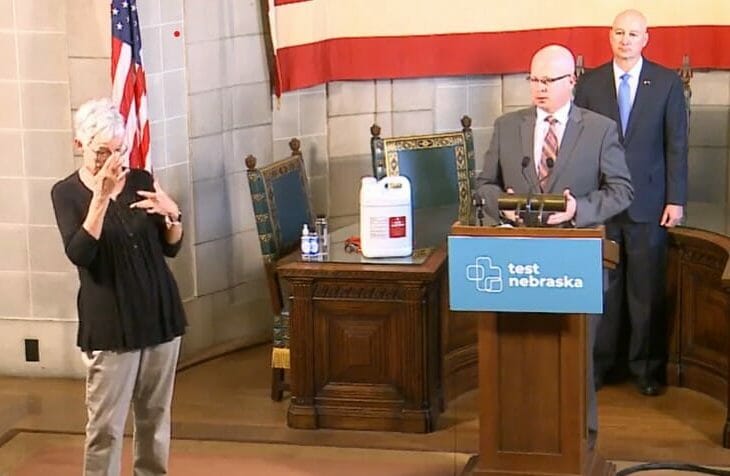
Nebraska is looking to provide $40 million to help operators of assisted living communities and skilled nursing facilities with their coronavirus pandemic-related expenses.
The state Department of Health and Human Services announced this week that it is seeking a temporary increase to the Medicaid per diem rate by $20 for long-term care facilities, retroactive to May 1 and going through the end of the calendar year. Most of the money — $25 million — would come from the federal government, with the state allocating $15 million on top of that amount, according to Gov. Pete Ricketts.
Working collaboratively with providers and long-term care associations, Jeremy Brunssen, interim director of the Division of Medicaid and Long-Term Care in the Nebraska DHHS, said he expects payments to go out this month. The intention, he added, is to reprocess claims without specific action needed by facilities.
Heath Boddy, president and CEO of the Nebraska Health Care Association, said the impact of this financial assistance on providers battling an “invisible monster” “could not come at a better time.” The financial support will help providers cover some of the costs they’ve already incurred, as well as provide the ability to increase wages, offer retention incentives and increase worker recruitment, he said.
“This will have an immediate, impactful effect on these facilities,” Boddy said.
The governor said the financial aid will be in addition to the state’s efforts to assist long-term care facilities with testing and personal protective equipment resources.
He said the state received a grant from the Centers for Disease Control and Prevention four years ago that helped create the Infection Control Assessment and Promotion program with the University of Nebraska Medical Center. Through that partnership, long-term care workers received training on slowing the spread of infections. That effort, Ricketts said, has been fruitful during the pandemic: Nebraska’s death rates from COVID-19 in its long-term care facilities is significantly lower than those of other states.
Nebraska Chief Medical Officer Gary Anthone, M.D., said the number of long-term care residents who tested positive for the coronavirus was 1,774 as of Monday, whereas the staff rate was 1,832. The state has experienced 238 coronavirus deaths among long-term care residents, which represents 36% of overall deaths from the virus in the state. He added that 312 out of the state’s 496 long-term care facilities reported a staff or resident case.
“It’s been a team effort to work in keeping our seniors safe in our long-term care facilities,” Ricketts said.




